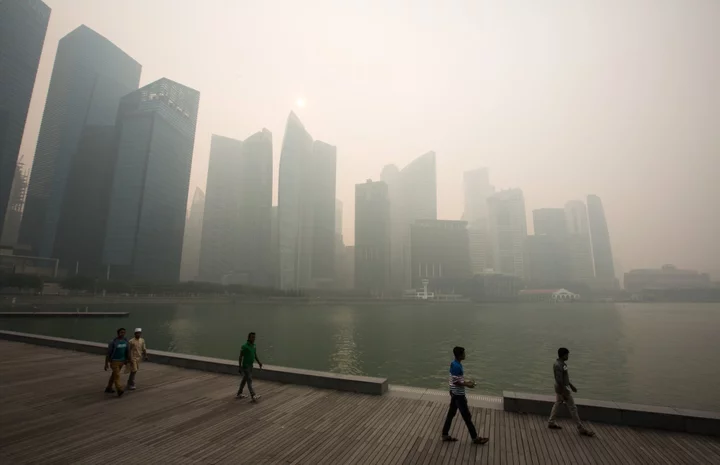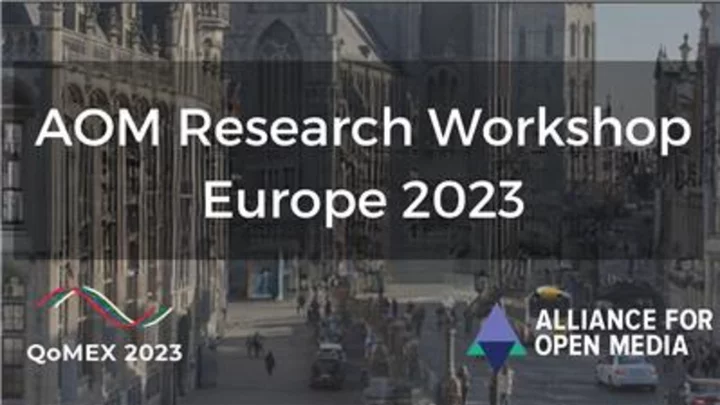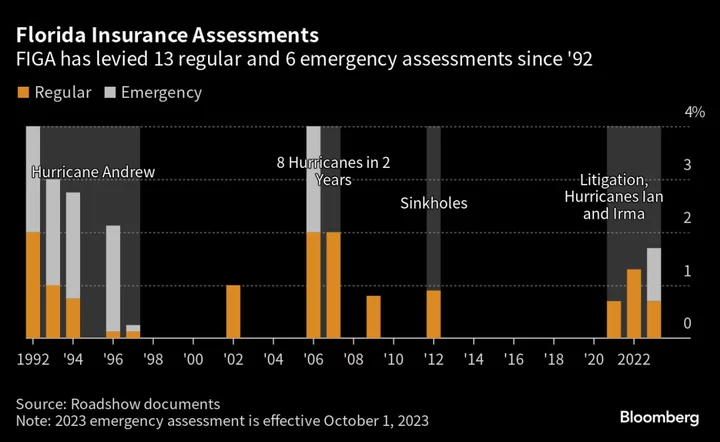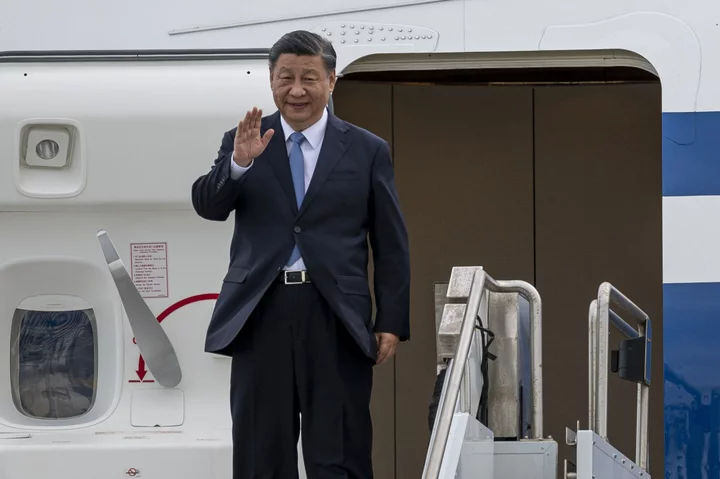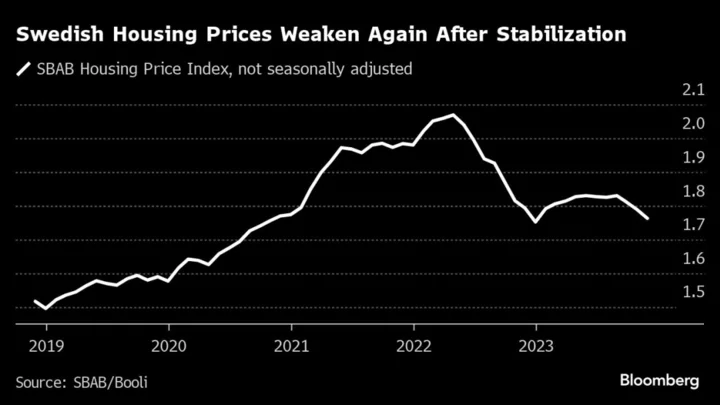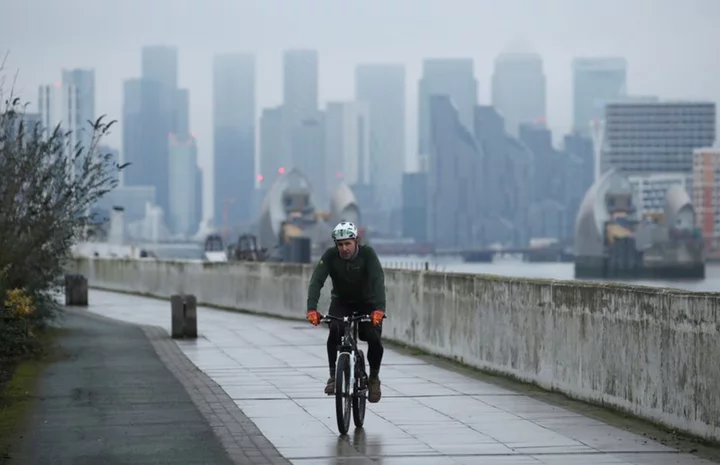Singapore, Indonesia and Malaysia may face the most severe haze in at least five years due to the likelihood of a strong El Nino that will bring hotter and drier weather, according to a new report.
The Singapore Institute of International Affairs assigned a rating of “red” in its Haze Outlook 2023 released on Wednesday. That’s the highest of three color-coded risk categories and the first time the red rating has been given since the independent think tank started producing the annual report five years ago.
“For the past three years skies across ASEAN have remained relatively haze-free,” Simon Tay, the institute’s chairman, said in the report. “However, there is a real risk in the year ahead that the situation will change, and for the worse.”
El Ninos usually result in less rainfall in Southeast Asia, and can exacerbate the spread of natural or man-made blazes that are often used to clear land for growing palm oil and rubber in Indonesia and Malaysia. The impact of the weather pattern could worsen an upsurge in climate change-driven forest fires in recent years that have broken out everywhere from Australia to Spain and Canada.
There remain questions about how severe this El Nino will be, the institute said in the report. The US National Ocean and Atmospheric Administration predicts an 84% chance it will be a strong event, with a 25% possibility of a “super El Nino,” it said.
Read More: First El Niño in Four Years Adds to Risks of Global Stagflation
It’s not just the El Nino driving haze risk, however. The prices of key agricultural commodities remain elevated, which may spur more slash-and-burn techniques to clear land, the institute said. So far, these price shifts have not resulted in a surge in deforestation, but there is some evidence that planting and replanting are on the rise.
The last time Southeast Asia experienced severe trans-boundary haze was in 2015, when the smoggy conditions created tensions between governments. Singapore warned residents last month that they should ensure they have sufficient face masks and air purifiers.
Part of the reason skies have remained fairly clear over the last three years was due to effective action by major plantation companies and the Indonesian and Malaysian governments, as well as unusually wet weather, the institute said.

